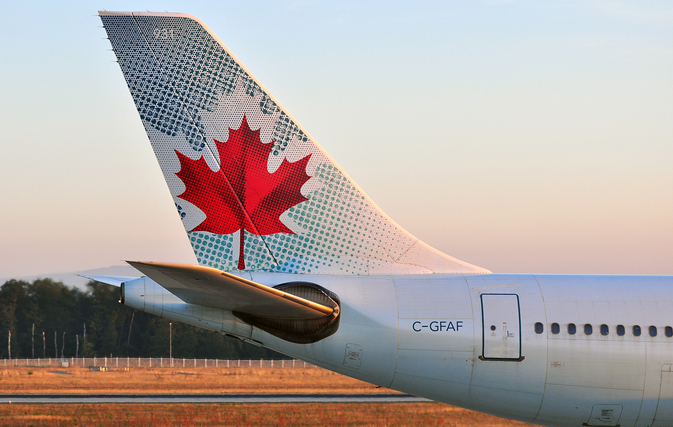MONTREAL — Air Canada’s move to launch its own loyalty program in 2020 will help to attract more foreign investors and narrow a gap in the value of its stock compared with its American rivals, CEO Calin Rovinescu said Monday.
Air Canada is negotiating with potential credit card partners and expects to announce a decision by the end of the year, the company said. The airline served notice last year that it does not plan to renew its more than 30-year-long partnership with Aimia Inc.-operated Aeroplan when the current contract ends in 2020.
Rovinescu said the company’s decision not to renew its Aeroplan partnership will deliver up to about $2.5 billion of value for investors, which could go a long way to eliminate some of the difference in how investors value the Canadian airline compared with its U.S. peers.
Part of the differential is due to the higher cost of doing business in Canada because of the fee and charges that U.S. airlines don’t face operating out of its airports, he said.
Chief financial officer Michael Rousseau added that the share price gap could also be narrowed as it attracts more investors from the U.S., Europe and Asia. Currently, 42% of its shareholders are from outside of Canada.
Closer to home, Air Canada said it is preparing to deploy its Rouge low-cost airplanes this summer on transcontinental routes to Western Canada in order to compete with ultra-low-cost rivals, including WestJet Airlines, which is preparing to launch its Swoop ultra-low-cost airline in June.
The routes will be between Montreal and Victoria, along with Toronto to Nanaimo and Kamloops, B.C., starting in June.
Air Canada is also looking to capitalize on labour woes at its rival WestJet and preparing to increase capacity if required in response to a potential strike by WestJet pilots.
“We certainly don’t take any pleasure from seeing WestJet’s current challenges and woes but certainly it’s our objective that if there was a business opportunity there we’ll seize upon it as they sought to do,” Rovinescu told shareholders.
Air Canada reported a smaller-than-expected loss in its first quarter as its revenue grew compared with a year ago, boosted by increased capacity and passenger traffic.
The Montreal-based airline said it lost $170 million, or 62 cents per diluted share, in its slowest quarter of the year, compared with a loss of $13 million or five cents per share in the same quarter last year.
Operating revenue for the quarter totalled a record $4.07 billion, up from $3.64 billion, helped by the business cabin where revenues were up nearly 14% on higher traffic and prices.
Non-fare ancillary revenues grew 17%, mainly from seat selection and preferred seats, which were up 56%, and upgrades that were 37% higher.
The strong results were achieved despite higher costs resulting from winter service disruptions, Rovinescu told analysts.
“Despite these challenges, our first quarter performance demonstrates our ability to perform against headwinds and our progress towards consistent earnings and long-term sustained profitability,” he said.
On an adjusted basis, Air Canada said it lost $52 million or 19 cents per diluted share compared with an adjusted loss of $63 million or 23 cents per diluted share a year ago. The improvement came despite higher fuel prices.
Analysts on average had expected an adjusted loss of 44 cents per share for the quarter, according to Thomson Reuters.
Air Canada will consider instituting a dividend as it gets closer to achieving an investment grade credit rating by the end of 2020, said Rousseau.
However, based on other airlines, he wasn’t sure there is any real reward from having a dividend program. He added that most shareholders he hears from prefer the company to reduce its debt and buy back some shares.

